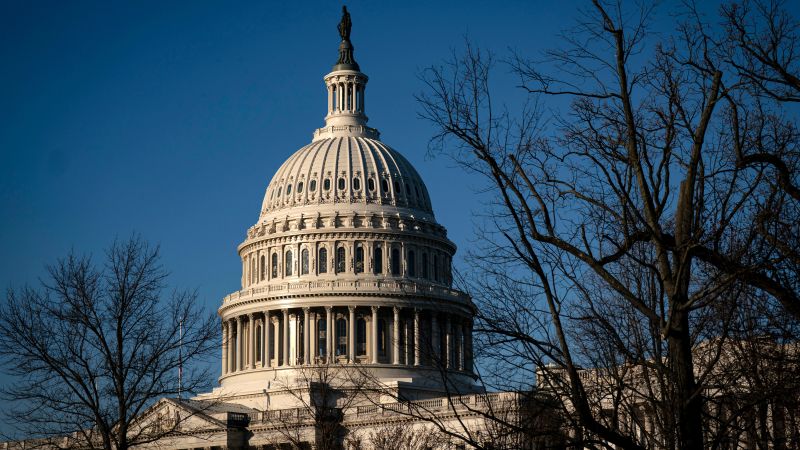The recent developments in U.S. legislation concerning nonprofits have generated considerable concern among various organizations on both sides of the political spectrum. A proposed measure under the Trump administration seeks to enhance the government’s ability to revoke the tax-exempt status of nonprofit organizations deemed to be supporting terrorism. Many nonprofit leaders argue that this move is largely seen as an effort to undermine entities that oppose the president’s agenda.
President Donald Trump has leveraged the authority of his office in unprecedented ways to target institutions such as prestigious law firms, elite universities, and perceived political adversaries. A salient instance of this effort occurred last month when Trump directed the Justice Department to initiate an investigation into ActBlue, the primary fundraising platform for Democratic candidates and progressive causes. This investigation exemplifies Trump’s broader strategy of using governmental authority to squeeze organizations that critique or challenge his policies.
The contentious language was recently added to a comprehensive legislative proposal, termed the “One Big Beautiful Bill Act,” which has emerged as a significant priority for Trump’s administration. This bill empowers the Treasury Secretary to suspend the tax-exempt status of organizations that the administration classifies as “terrorist supporting,” a designation that critics argue could be misused to target opposition groups.
More than 200 disparate organizations, including the American Library Association and the Sierra Club, have come together to issue an open statement requesting that this provision be removed from the bill. They contend that the language serves as a weapon for the president to eliminate his opponents under the guise of counter-terrorism efforts. Cole Leiter, the executive director of Americans Against Government Censorship, characterized this approach as an alarming example of government power being manipulated against political adversaries.
Concerns among nonprofits extend beyond this specific provision, especially given an impending deadline for government agencies to compile lists of potential targets, including publicly traded corporations, foundations, universities, and various nonprofit organizations that could face civil investigations. This looming threat has led many in the sector to express their anxiety about the future implications of such measures.
In defense of the proposed changes, a White House official asserted that Trump is acting within the bounds of legality. White House spokesperson Harrison Fields emphasized that the president’s initiatives seek to restore law and order by eliminating what he terms the weaponization of the legal system. In his communications, Fields reiterated claims that during Trump’s absence from office, the judicial system had been weaponized against him.
Notably, the tax provision closely mirrors a previous bill crafted by New York Republican Representative Claudia Tenney, which was passed by the House in the last congressional session but failed in the Senate. The current provision allows the Treasury Secretary to suspend the tax-exempt status of charities that are perceived to provide “material support or resources” to organizations classified as terrorist entities.
Critics of the measure argue that it risks undermining due process rights for organizations. Kia Hamadanchy, a senior policy advisor with the American Civil Liberties Union (ACLU), pointed out that existing laws already prohibit providing material support to terrorist organizations. However, the new measure could grant the Treasury Secretary disproportionate authority to classify organizations as supporting terrorism without judicial oversight.
Furthermore, Lisa Gilbert, co-president of the liberal watchdog group Public Citizen, expressed concern that international nonprofits could inadvertently find themselves ensnared within this provision. This could consequently jeopardize organizations that engage in humanitarian efforts abroad or receive funding from global foundations not exclusively tied to the United States.
As the proposed bill faces challenges in the House, where GOP leaders aim to bring it to a vote next week, it is crucial to note that significant opposition exists. If the bill progresses to the Senate, organizations opposing the provisions related to tax-exempt status are prepared to vocalize their opposition to avert its potential ramifications.
The overarching bill encapsulates various presidential priorities, ranging from tax cuts to immigration enforcement, but navigating the legislative process remains difficult, particularly given narrowly held Republican majorities in both chambers. The reliance on budget reconciliation could also be hindered by provisions that do not substantively impact the budget, as noted in earlier analyses indicating the tax provision’s minimal fiscal effect.
Federal regulations forbid the president from initiating tax investigations against specific individuals or organizations. Nonetheless, Trump has publicly considered revoking the tax-exempt status of the prestigious Harvard University for not complying with his policy preferences, which raises alarms about potential overreach and selective targeting of educational institutions and watchdog groups like Citizens for Responsibility and Ethics in Washington (CREW).
With the Trump administration actively seeking to identify targets as part of its efforts against perceived illegal discrimination, nonprofit leaders remain vigilant, readying themselves for potential audits and bracing for what may come next. As uncertainty looms, the very meaning of being classified as a target under Trump’s administration causes apprehension and concern among organizations focused on social justice, civil rights, and equity.



